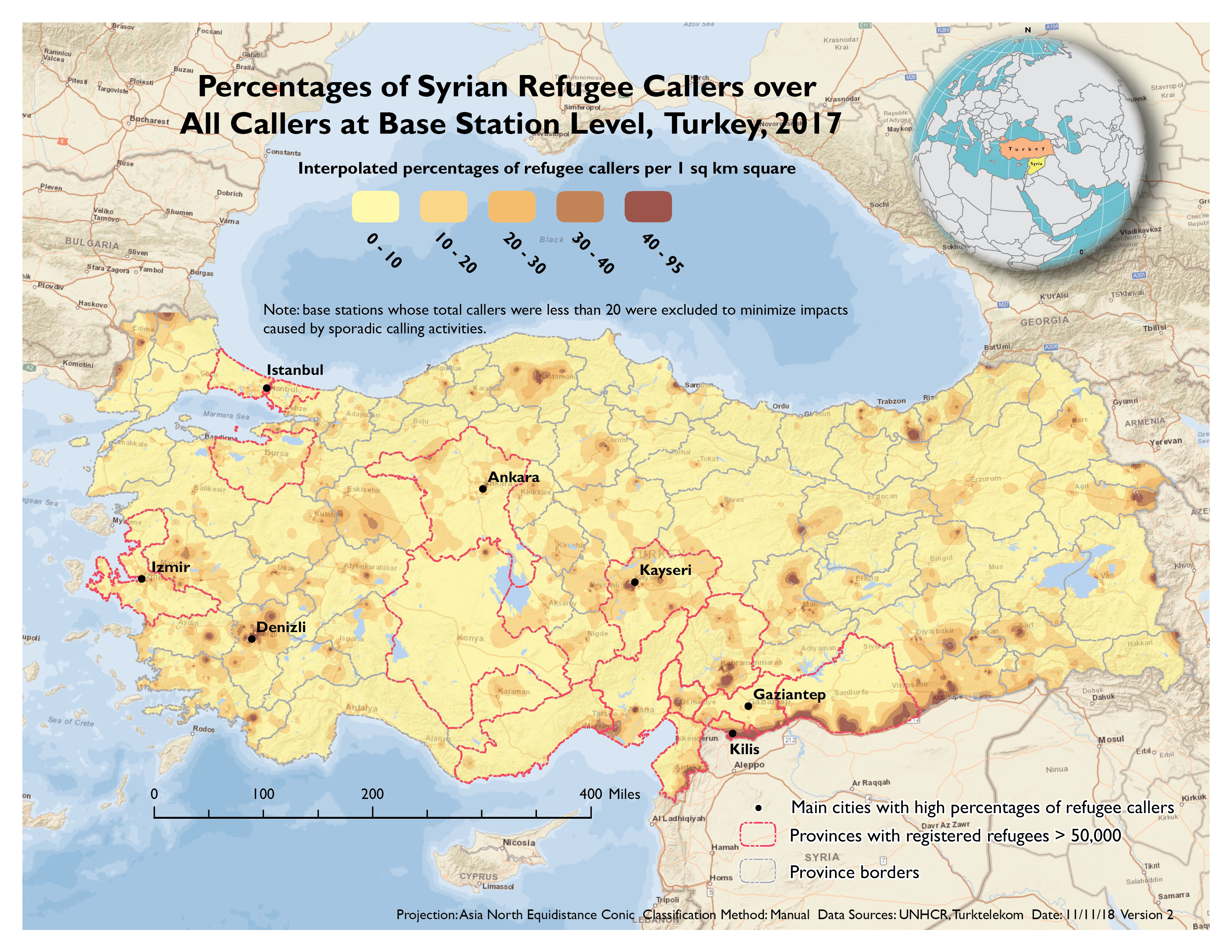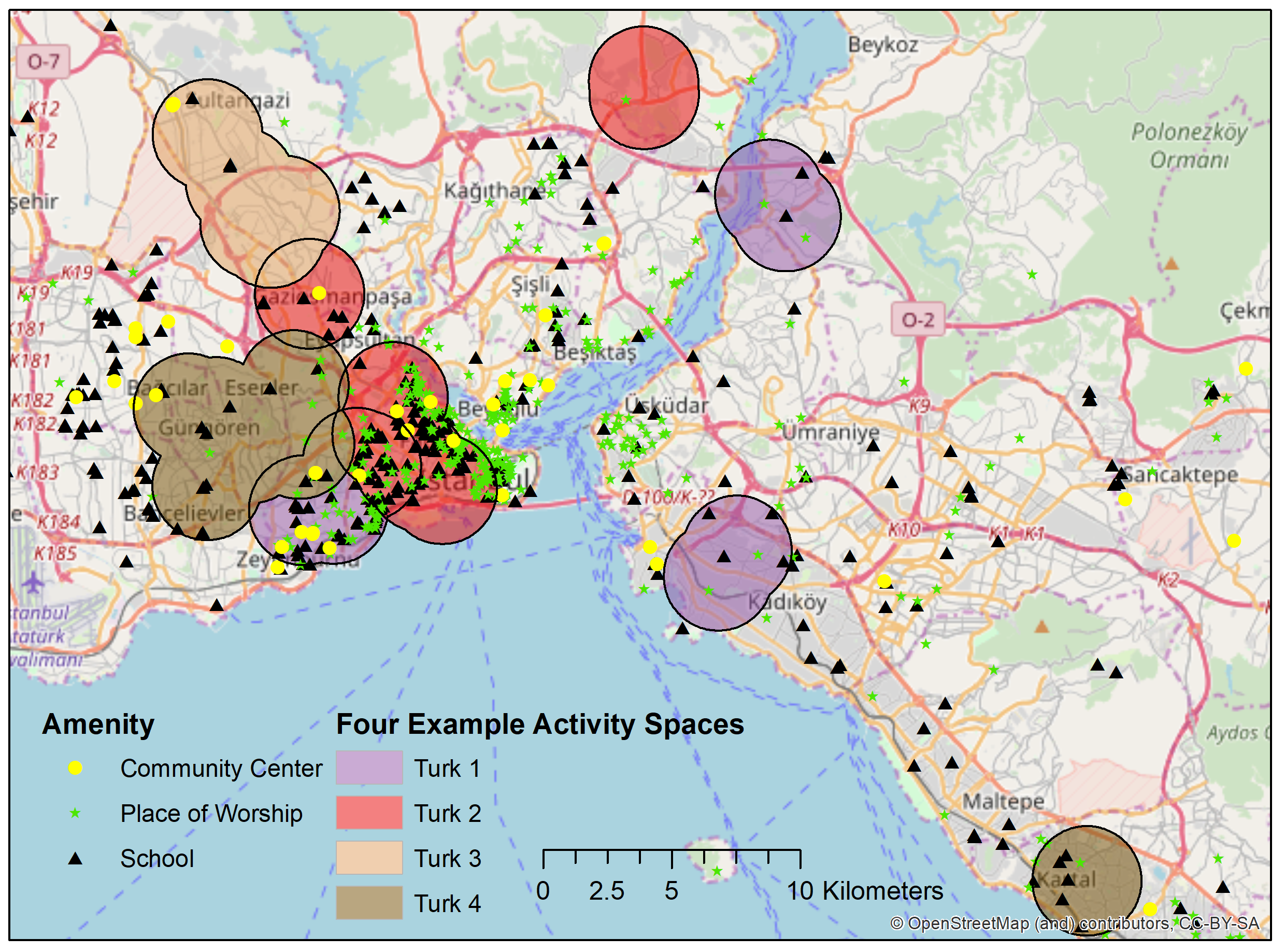We use a large call detail record (CDR) dataset from mobile operator Türk Telekom to examine how refugees from the Syrian Refugee Crisis are integrating into Turkish society. We extract different types of callers from the social network: refugees who often call Turkish nationals, refugees who do not call Turks; Turks who often call refugees, and Turks who do not call refugees. We consider frequent phone calls between refugees and Turks to indicate high levels of bridging social capital for these users, and that refugees tied to Turkish nationals through calls have integrated into the Turkish society, economically and/or socially. We also assume that Turks who often call refugees are investing in creating these relationships (although these comprise a relatively small set of users).
We found few significant geographic patterns for refugees who were calling Turks often. However, bridging Turks were found to be located near infrastructural variables such as places of worship, schools, community centers, and social centers/facilities, more often than their non-bridging counterparts. These differences were strongest in locales with Muslim and Sunni Muslim places of worship. In these locales, presumably, refugees and Turkish nationals share common values and beliefs. Our results provide quantitative evidence suggesting the significance of social amenities and meeting places for face-to-face connection and social support for the livelihoods of refugees and refugee integration


